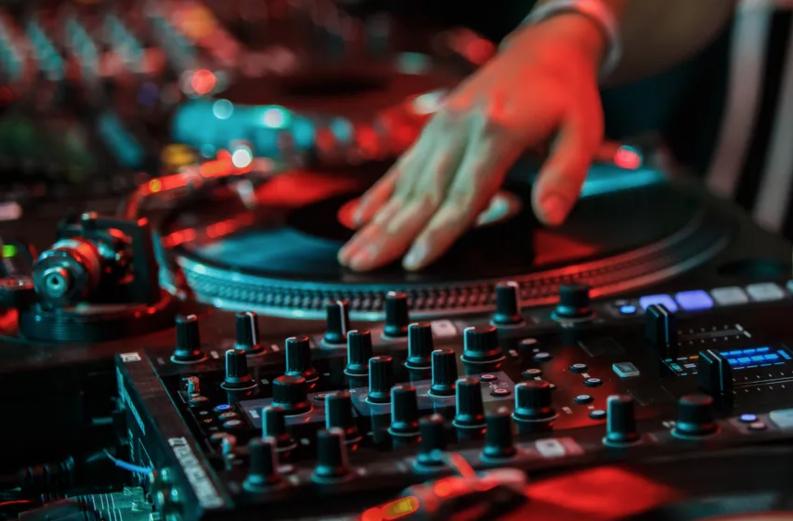In today’s modern world of DJ gear, many setups feature “fixed” or “static” jog wheels/platters, which do not physically turn when you hit the play button, even in high-end club setups. However, some DJs have a penchant for the classic spinning decks reminiscent of old turntables.
If you belong to a group that favors a more traditional feel, it’s essential to recognize that not all motorized decks are crafted equally. In fact, there are three distinct types available for your selection.
So, how do you determine the best fit? As you approach this article’s conclusion, you’ll possess a thorough grasp of the reasons to choose motorized platters. Keep reading as we explore the realm of motorized DJ controllers!
Motorized Jog Wheels: Pros and Cons
A faction of DJs, nurtured on classic turntables equates the art of DJing with the tactile sensation offered by a motorized controller. The allure of the vinyl spinning under their fingertips, coupled with the visual appeal of the platters in motion, creates an immersive experience that’s hard to replicate with static jog wheels found on modern controllers and decks. Let’s delve into the pros and cons of this preferred setup to understand why some DJs are staunch advocates for motorized controllers.
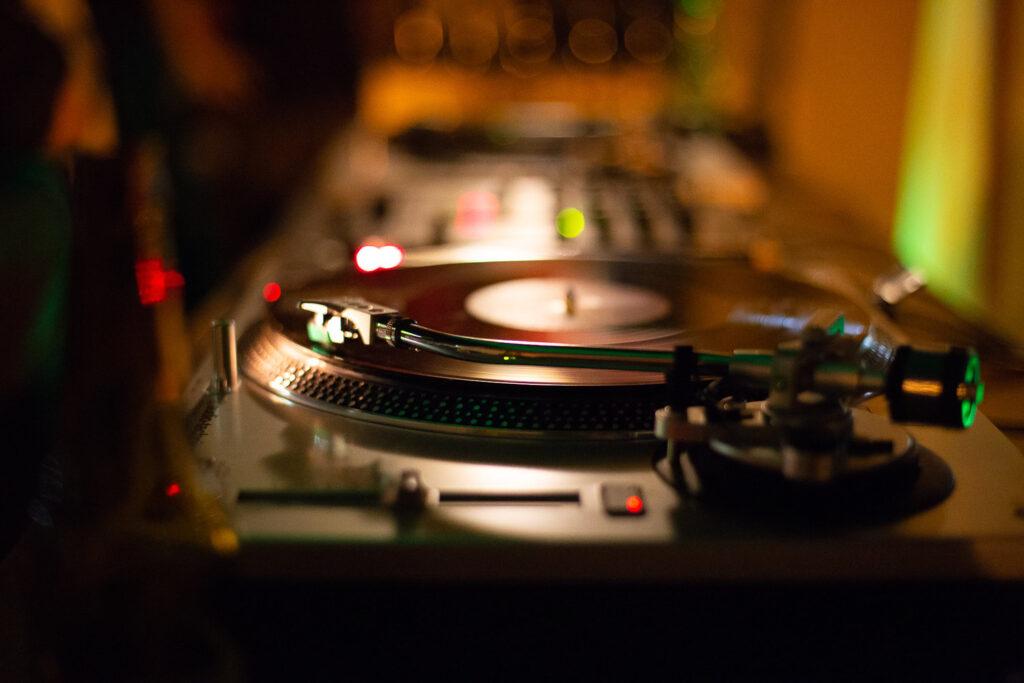
Pros of Motorized Platters
Tactile Feel
The interaction between the DJ’s fingers and the platter provides a sensory experience unique to motorized turntables. The tactile feel can enhance the DJ’s connection with the music and their performance. Many DJs prefer this method as it closely resembles the classic art of vinyl DJing.
Aesthetic Appeal
The spinning platters of a motorized setup are not only functional but also add a visual element to the DJ’s performance. This can captivate the audience and create a more engaging live show. It adds a touch of professionalism and flair to the DJ set.
Increased Respect from Crowds
The classic, motorized setup can garner admiration from live audiences who appreciate the traditional art of DJing. This respect can enhance the DJ’s reputation and credibility in the industry. It can also add to the overall enjoyment of the performance for both the DJ and the audience.
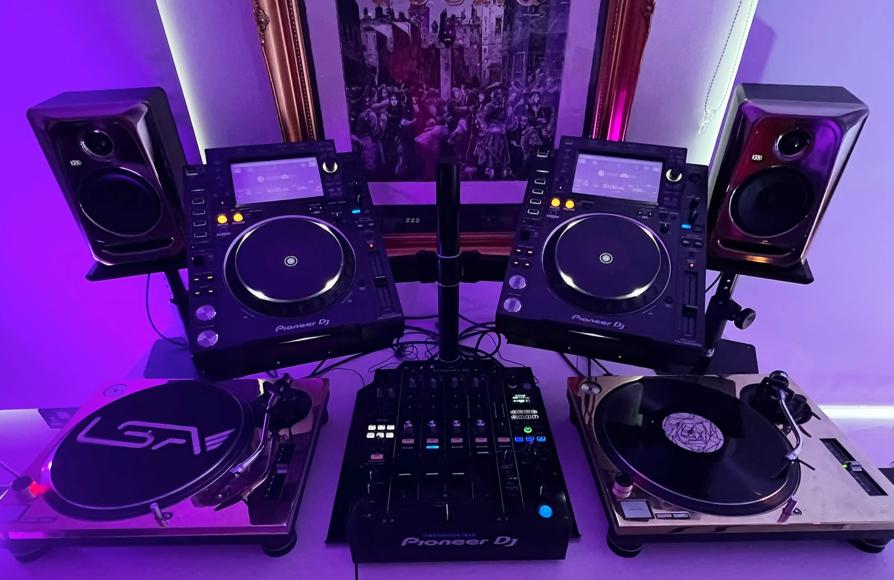
Cons of Motorized Platters
Increased Power Consumption
Motorized devices powered by robust motors frequently draw more electricity, which affects both environmental sustainability and a DJ’s financial outlay. Such a consideration is critical in selecting a motorized setup. Additionally, bear in mind that specific venues may have restrictions on power consumption.
Heavier Equipment
Incorporating electric motors into a setup invariably increases its heft, challenging portability and complicating transportation. DJs who often journey between gigs or play across various locations might find such added bulk a notable drawback. Moreover, the increased mass escalates the risk of wear and tear, which could affect the longevity of motorized equipment.
Breakdown Risks
Motorized devices, due to their electric motors, might exhibit a higher susceptibility to malfunctions or breakdowns. Such issues can lead to exasperation and unexpected expenses, mainly if they arise amidst a live performance. Diligent maintenance and attentive care are vital to mitigating the risk of operational failures.
Motorized DJ Equipment Options: Three Different Ones
If you’re certain about taking this direction, you’re in luck, as there are three distinct options at your disposal:
- Turntable replicas
- Combination jog wheels
- Powered jog wheels
Each has its features and benefits. Let’s delve deeper into each to help you make an informed decision.
Turntable Replicas
DJs seeking the authentic “turntable touch” will find the motorized Rane Twelve, Rane ONE, and Denon DJ SC6000M as standout choices. These devices aren’t just equipped with jog wheels; they’re meticulously crafted to mirror the look and tactile experience of classic turntables. Take the Rane Twelve, for instance: a Serato control deck mirroring the dimensions of a traditional turntable, offering an experience eerily reminiscent of the real deal, minus the tonearm, of course.
On the more compact end of the spectrum, you have the standalone Denon DJ SC6000M and the Rane One Serato controller. Both, despite their reduced sizes, manage to encapsulate that signature turntable essence.
One major perk of these systems is their ability to provide a turntable-esque feel. However, there’s a catch. The underlying technology, shared across these devices since both brands belong to the same parent company, incorporates a protruding 2-inch adapter at the jog wheel’s center. While it’s less noticeable on the larger models, it could be a slight hiccup on the more petite ones.
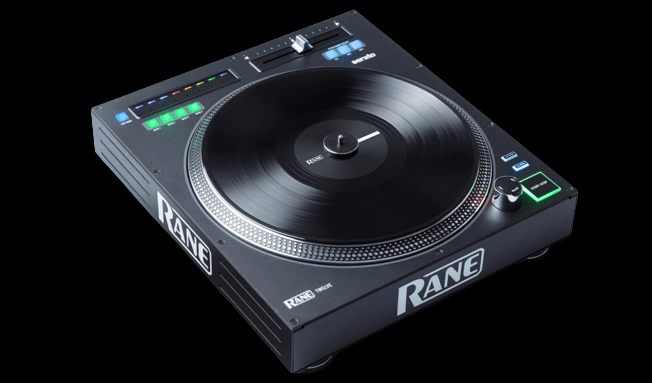
Combination Jog Wheels
Pioneer DJ’s groundbreaking DDJ-REV7 stands alone in the “combination” jog domain. Much like the turntable replicas, they sport faux vinyl on the surface, a slip mechanism underneath, and a high-torque motor powering their rotation. Yet, distinctively, they lack a spindle, opting instead for a clear top that reveals a display, a feature typical of many jog wheels.
These devices are awe-inspiring, blending the best features of both realms. However, a word of caution: as of this writing, the technology is still fresh. Supply challenges have made them scarce, and it’s too early to tell if they’ll face any initial hiccups. But the early signs are promising.
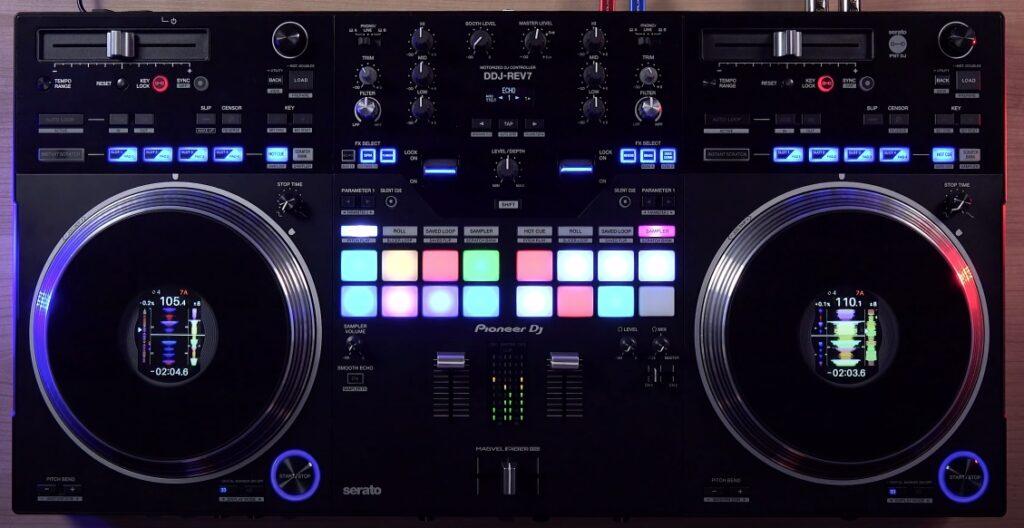
Powered Jog Wheels
DJs not pursuing the classic turntable sensation will discover that the S4Mk3 offers a streamlined, lightweight motorized alternative. Rather than emulating turntables, they’re standard jog wheels that get into motion once activated. Presently, the standout in this category is the Traktor Kontrol S4 Mk3, a DJ controller tailored for the Traktor Pro software by Native Instruments.
What’s exciting about this controller? It’s notably lighter compared to the others mentioned, offering a crisp and straightforward jog experience. And let’s be clear: these controllers are fantastic. However, a word of caution: don’t expect a turntable-like touch. Nonetheless, they have a smooth feel, and yes, they do rotate! It could be precisely the spin you’re looking for.
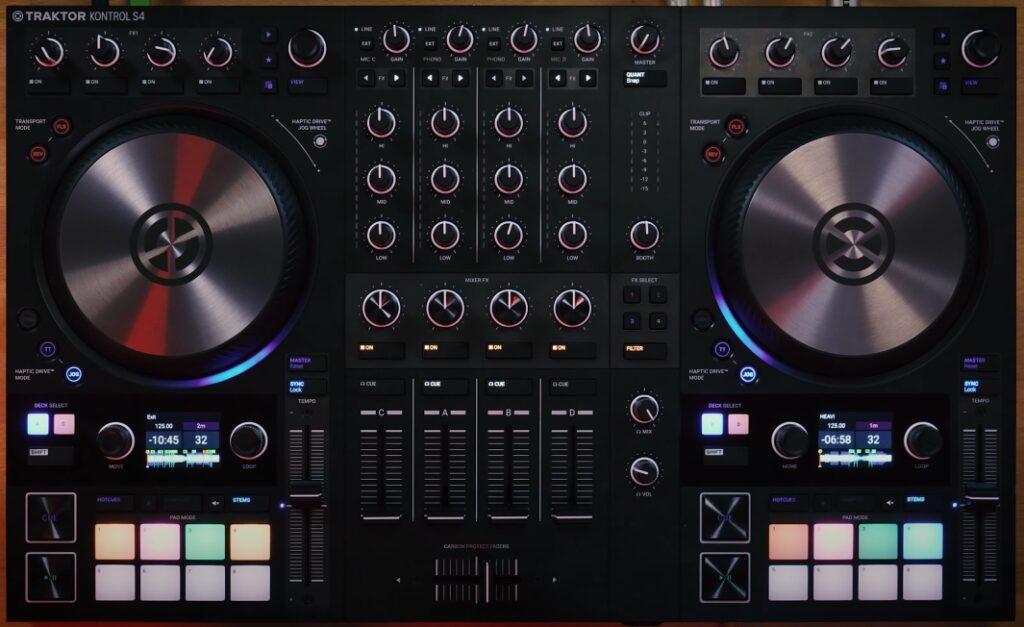
Bonus: Digital Vinyl System
You can also embrace the digital DJ era while keeping it classic with traditional turntables. To achieve such a setup, a “DVS-compatible mixer” and a specialized form of vinyl called timecode vinyl are required.
Here’s how it works: the vinyl transmits computer code to the mixer. The mixer then relays this to a connected laptop with modern DJ software. Based on how the DJ manipulates the vinyl, music is sent back through the mixer.
The clever setup of using timecode vinyl for digital mixing predates the newer technologies discussed previously. Adding a modern touch, the innovation known as Phase introduces a wireless variant to the time-honored technique. Exploring such advancements can be highly beneficial for those looking to update their classic record decks for compatibility with DJ software.
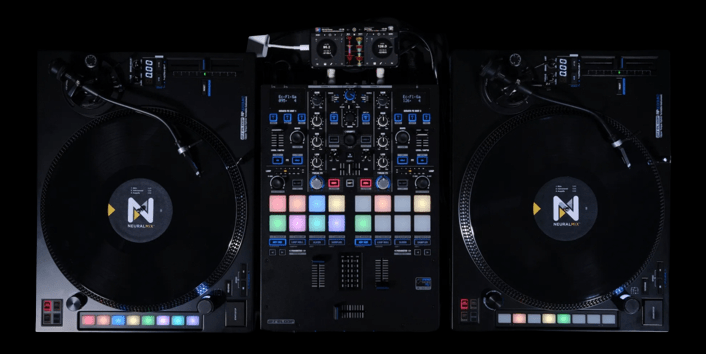
Final Thoughts
Powered jog wheels, spinning platters, or motorized DJ controllers—-whatever you prefer to call them, might not be everyone’s cup of tea, but they sure are enjoyable. It’s certainly worth giving them a whirl when you have the opportunity to see if they resonate with your style. Currently, an unmatched array of systems is on offer, and with any luck, the insights provided here have helped in deciding if such a direction aligns with your preferences.
Author
-
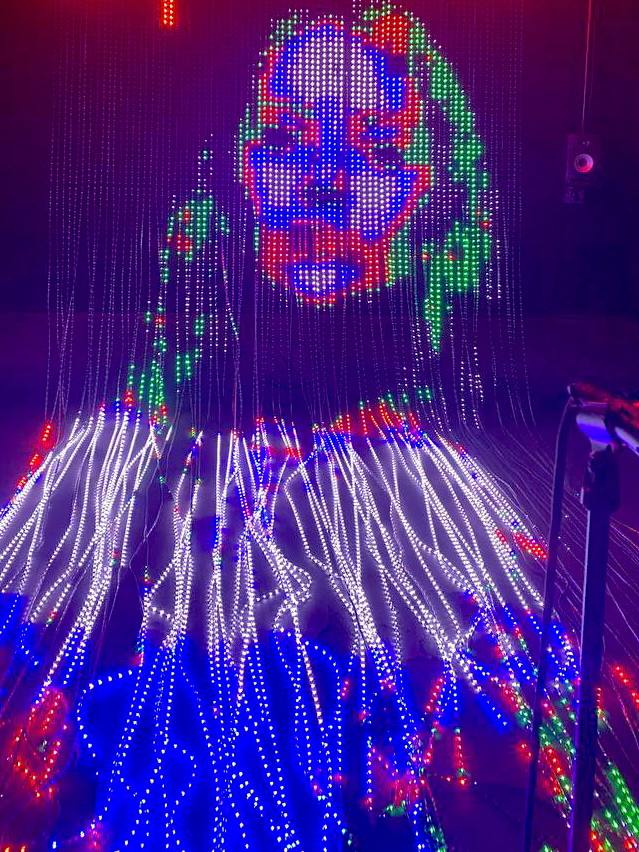
Hello, I’m Monica Blunder. As a fervent author and a DJ enthusiast, I’ve spent years immersed in the world of DJs and their music. My job here at EverybodyIsADJ.com is to keep you informed about the latest trends, tips, and news from the DJ community.

